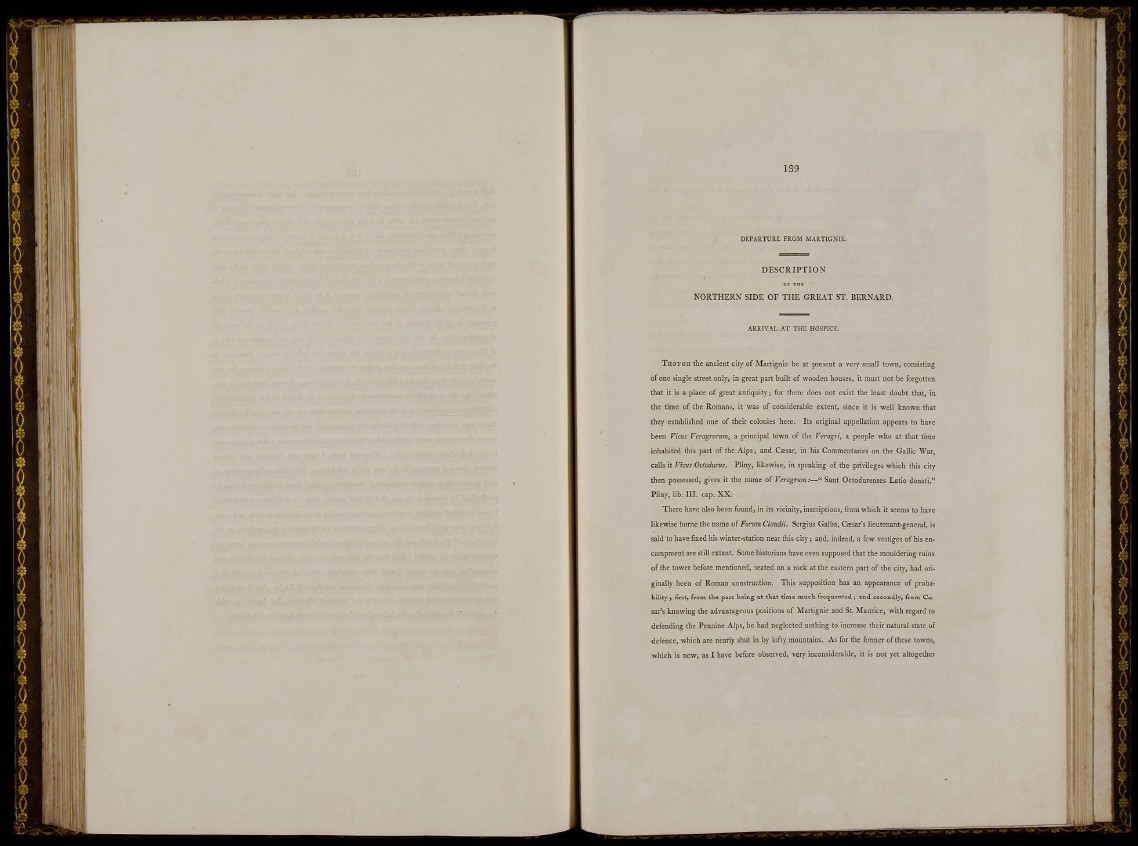
DEPARTURE FROM MARTIGNIE.
D E S C R I P T I O N
N O R T H E R N SIDE OF THE GREAT ST. BERNARD,
ARRIVAL AT THE HOSPICE.
THOUGH the ancient city of Martignie be at present a very small town, consisting
of one single street only, in great part built of wooden houses, it must not be forgotten
that it is a place of great antiquity; for there does not exist the least doubt that, in
the time of the Romans, it was of considerable extent, since it is well known that
they established one of their colonies here. Its original appellation appears to have
been Viais Veragrorum, a principal town of the Veragri, a people who at that time
inhabited this part of the Alps ; and Cssar, in his Commentaries on the Gallic War,
calls it Viciis Oc(odiit^(s. Pliny, likewise, in speaking of the privileges which this city
then possessed, gives it the name of Veragrim:—" Sunt Octodurenses Latio donati."
Pliny, lib. I I I . cap. XX.
There have also been found, in its vicinity, inscriptions, from which it seems to have
likewise borne the name of Fo7-um Claudii. Sergius Galba, Casar' s lieutenant-general, is
said to have fixed his winter-station near this city; and, indeed, a few vestiges of his encampment
are still extant. Some historians have even supposed that the mouldering ruins
of the tower before mentioned, seated on a rock at the eastern part of the city, had originally
been of Roman construction. This supposition has an appearance of probability
i first, from the pass being at that time much frequented} and secondly, from Cssar's
knowing the advantageous positions of Martignie and St. Maur ice, with regard to
defending the Pennine Alps, he had neglected nothing to increase their natural state of
defence, which are nearly shut in by lofty mountains. As for the former of these towns,
which is now, as I have before observed, very inconsiderable, it is not yet altogether